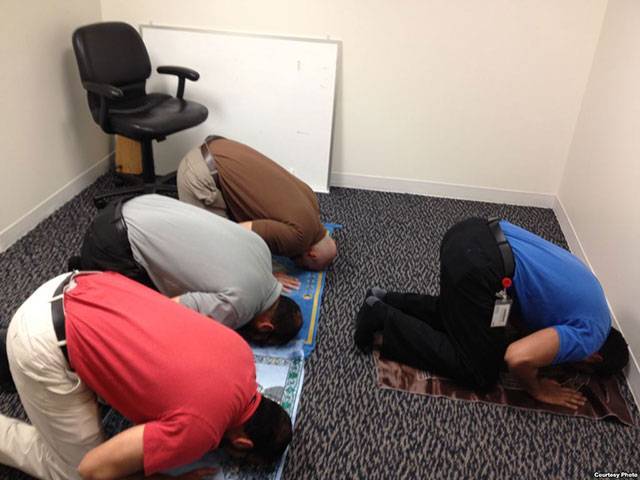
The terminated workers were among 53 Somali Muslims who walked off the job on January 14 after Ariens Company, a tools and equipment maker in Brillion, Wisconsin, began requiring them to pray only during the two 10-minute breaks provided to them during the day, the company said in a statement.
US company changes policy to cancel Muslim prayer breaks
The seven workers were fired for taking unscheduled breaks, while 14 others have resigned since the walkout.
The 32 Muslim employees who came back to work were following the break rules, the company said.
Muslims are required to pray five times a day - at daybreak, noon, mid-afternoon, sunset and evening. "We would have liked for more of the employees to stay, however, we respect their faith, we respect the work they have done for Ariens Company and we respect their decisions," the company said.
US company fires 200 Muslim employees over prayer dispute
The former employees are working with the Council on American-Islamic Relations to determine their next steps, which could include legal action against the company, said Jaylani Hussein, the organization's executive director.
"It came out of nowhere and the company did not want to listen to some suggestions and options to make the current breaks more flexible to align with the prayer schedule," he said.
Ariens, which has 1,500 employees worldwide, has set up designated prayer rooms for Muslim workers in Brillion, the company said. Brillion is about 25 miles south of Green Bay.
Muslim truck drivers fired for refusing to deliver beer awarded $240,000
The company said letting the workers pray during unscheduled breaks disrupted production schedules. In certain circumstances, workers can be prohibited from praying during unscheduled breaks if it causes an "undue hardship" for the business, according to the US Equal Employment Opportunity Commission.
Nearly 200 workers, mostly Somali immigrants, were fired from a Cargill Meat Solutions facility in Fort Morgan, Colorado, on December 31 after staging a walkout to protest what they said were insufficient prayer accommodations.

1730360426-0/Menendez-Brothers-(2)1730360426-0-165x106.webp)
1732534556-0/taylor-(14)1732534556-0-165x106.webp)
1725872216-0/Tribune-Pic-(3)1725872216-0-165x106.webp)
1732532771-0/BeFunky-collage-(89)1732532771-0-165x106.webp)
1732518687-0/Copy-of-Untitled-(78)1732518687-0-270x192.webp)











COMMENTS (40)
Comments are moderated and generally will be posted if they are on-topic and not abusive.
For more information, please see our Comments FAQ